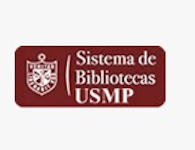Factores de riesgo asociados a progresión bioquímica postprostatectomía radical Hospital Nacional Luis Nicasio Saenz 2009-2017

View/Open
Trabajo
(application/pdf: 965.0Kb)
(application/pdf: 965.0Kb)
Date
2019Author(s)
Garnique Díaz, Emilio Sebastian
Advisor(s)
Izaguirre Sotomayor, Manuel
Metadata
Show full item recordAbstract
Objective: To determine the risk factors associated with biochemical progression after radical prostatectomy. National Hospital Luis Nicasio Sáenz 2009-2017.
Methodology: Analytical, retrospective, cases and controls. The population consisted of 54 patients with prostate cancer operated on by prostatectomy who met the selection criteria, which were distributed in a case group and a control group; a patient with PSA> 0.2 ng / ml after radical prostatectomy was defined as a case. The Chi square test and odds ratio were used.
Results: The average age of patients with and without biochemical progression after prostatectomy was 63.4±4.9 and 63.4±6 years, respectively, without significant differences (p = 0,982), the distribution by age groups showed that the majority is between 60 to 69 years. The risk factors for biochemical progression were: Gleason score> 7 (p = 0.028, OR = 3.55; 95% CI: 1.12-11.28), surgical edge compromised (p = 0,007, OR = 5.07; 95% CI: 1.54-16.64), compromised seminal vesicles (p=0.013; OR=6.154; IC95%: 1.404-26.977) and tumor size greater than 20 mm (p = 0.027, OR = 4.200, 95% CI: 1,161-15.189).
Conclusion: The risk factors for biochemical progression in patients with prostate cancer are Gleason> 7, compromised surgical border, seminal vesicles compromised and tumor size greater than 20 mm.
Collections
- Tesis de maestría [599]
Publisher
Universidad de San Martín de Porres
Type of research
https://purl.org/pe-repo/renati/type#tesis
Rights
info:eu-repo/semantics/openAccess
Notes
RESUMEN
Objetivo: Determinar los factores de riesgo asociados a progresión bioquímica postprostatectomía radical, Hospital Nacional Luis Nicasio Sáenz 2009-2017.
Metodología: Estudio analítico, retrospectivo, casos y controles. La población estuvo conformada por 54 pacientes con cáncer de próstata intervenidos por prostatectomía que cumplieron los criterios de selección, fueron distribuidos en un grupo caso y grupo control; se definió como caso aquel paciente con PSA > 0.2 ng/ml postprostatectomía radical. Se utilizó la prueba de Chi cuadrado y odds ratio.
Resultados: La edad promedio de pacientes con y sin progresión bioquímica postprostatectomía fue 63.4±4.9 y 63.4±6 años, respectivamente; sin diferencias significativas (p=0.982), la distribución por grupos etarios evidenció que la mayoría se ubica entre los 60 a 69 años. Los factores de riesgo para progresión bioquímica fueron: puntaje Gleason > 7 (p=0.028; OR=3.55; IC95%: 1.12-11.28), bordes quirúrgicos comprometidos (p=0.007; OR=5.07; IC95%: 1.54-16.64), vesícula seminal comprometida (p=0.013; OR=6.154; IC95%: 1.404-26.977) y el tamaño tumoral mayor a 20 mm (p=0.027; OR=4.20; IC95%: 1.161-15.18).
Conclusión: Los factores de riesgo para la progresión bioquímica en pacientes con cáncer de próstata son Gleason > 7, borde quirúrgico comprometido, vesícula seminal comprometida y tamaño tumoral mayor a 20 mm.







